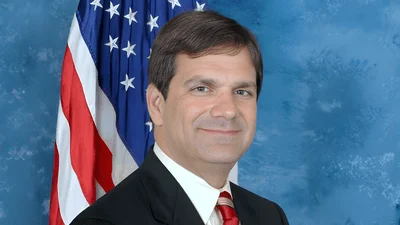Congresswoman Debbie Wasserman Schultz (D-FL), Chair of the Military Construction, Veterans Affairs, and Related Agencies Appropriations Subcommittee, delivered the following remarks at the Subcommittee's hearing on "VA Whole Health, Mental Health and Homelessness":
Today we welcome Dr. David Carroll, the Executive Director of Mental Health Operations, Dr. Roger Casey, the Director of Education-Dissemination at the National Center on Homelessness, and Dr. Tracy Gaudet, the Director of the Office of Patient Centered Care.
Dr. Gaudet - we invited you to testify today at the request of my colleague from Ohio, Mr. Ryan, who asked that you join us for this hearing to shed light on the great work you are doing to spearhead the Whole Health effort.
Whole Health is a relatively new venue of care at VA that goes beyond treating the physical symptoms of diseases, and works to personalize health care plans for veterans that consider the physical, mental, emotional, spiritual, and environmental needs of veterans.
As a Floridian, I am happy to see the Tampa VA Medical Center is the Whole Health flagship site in VISN 8, and the West Palm Beach VA Medical Center is one of the 2018 Whole Health Design Sites. I’m optimistic to hear how the Whole Health initiatives will improve the health and lives of veterans.
On a more somber note, just last week in my home state of Florida, a veteran reportedly fired seven shots in the emergency room in the West Palm Beach VA Medical Center. Fortunately, no one was killed, but a VA physician was wounded.
I am grateful for the heroic actions of the VA staff and another veteran in the ER for subduing the shooter. However, we cannot afford to let people risk their lives because we can’t provide adequate mental health care. From what I can tell, the VA medical staff followed all of the correct procedures for treating someone who said they were suicidal. But this calls for a greater conversation for how we can better help and support veterans with mental health issues.
An average of 20 veterans die by suicide each day. An average of 6 of those 20 veterans are recent users of Veterans Health Administration services, meaning the remaining 14 veterans never received care from VA. While we need better outreach to the veterans who were never seen by VA - and I’ll address that in my questions later, we need to find out how we can better support the veterans who do take that first step to seek help within the VA but still fall through the cracks. We cannot allow this to happen. And we certainly cannot tolerate a dramatic drop-off in suicide prevention efforts, as we recently witnessed in media outreach spending.
While I know VA is working hard to bolster mental health programs, there is clearly room for improvement and more needs to be done.
Effectively supporting the mental health of our veterans is one of my highest priorities on this subcommittee. Effective and robust mental health programs must be available to all veterans 24 hours a day, 7 days a week, or we will continue to fail our veterans and our country.
This brings me to another area of concern - veteran homelessness. Most homeless veterans suffer from one or a combination of mental health issues. If we can dig deep and commit to addressing the root causes of homelessness, like psychiatric and substance abuse diagnoses, we will be able to make more significant strides to ending veteran homelessness.
VA announced back in 2009 it would eliminate veteran homelessness by the end of fiscal year 2015. I would like to commend VA for their collaborative work with the Department of Housing and Urban Development, and for successfully ending veteran homelessness in 3 states and 66 communities.
Under the Obama Administration, veteran homelessness decreased 47 percent between 2010 and 2016, and I challenge the current administration to build off President Obama’s success and leadership on this issue, and continue the efforts to successfully eliminate veteran homelessness.
VA’s goal was to end veteran homelessness writ large throughout the country. We’ve got work to do in the other 47 states.
That being said - Dr. Carroll, Dr. Casey, and Dr. Gaudet - we asked you to join us today because we want you to tell us how we can help you do your jobs better. We appreciate the great work that you all are doing in the whole health, mental health, and veteran homelessness spheres, and we need to continue the charge and work harder to deliver more for our veterans.
Dr. Carroll, thank you again for being here today, and I look forward to your testimony and discussing these important issues with you, Dr. Casey, and Dr. Gaudet.
Source: U.S. Department of HCA







